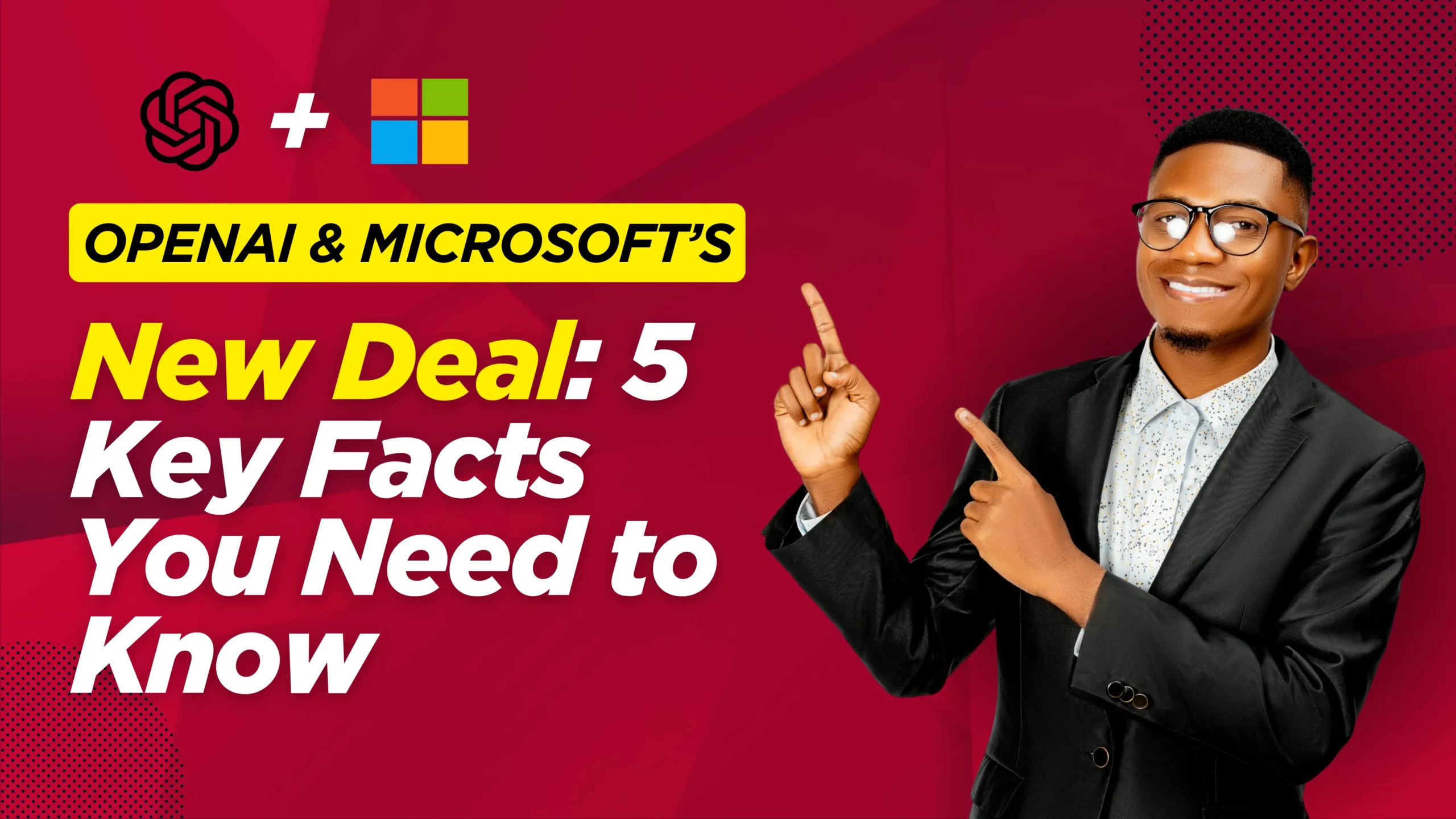Introduction
Once again, Microsoft and OpenAI are making big news in the tech world. The two business entities have made a new arrangement that isn’t binding, but it might change their collaboration totally. If this transition happens, OpenAI may become a for-profit company. This would give it more freedom to raise money, work on new AI projects, and maybe even go public in the future.
For the AI sector, this is a significant time. Although OpenAI has been heavily supported by Microsoft for many years, the company is now expanding and seeking more freedom and opportunity. This announcement signals the beginning of an exciting new chapter for everyone with an interest in technology or artificial intelligence.
1. The Non-Binding Deal Signals a Major Shift
The fact that Microsoft and OpenAI agreed to a non-binding deal means that big changes are coming. Even though the fine print hasn’t been worked out yet, this deal is a clear sign that both companies are ready to rethink how they work together. It is not a completed deal, but it opens the way for a significant reorganization of their collaboration.
This transition might allow OpenAI to operate independently, explore new opportunities, and raise funds from a wider range of investors. Microsoft must adapt its role, remaining an essential partner but no longer the sole important participant in OpenAI’s tale.
2. OpenAI Eyes a For-Profit Future
OpenAI, which is now run by a charity, intends to become a for-profit enterprise. This change would offer the organization considerably more flexibility in raising funds from investors, comparable to how other major technology businesses get finance for growth.
By going for-profit, OpenAI may raise billions of dollars in new financing, expand the size of its AI programs, and invest extensively in new technologies and infrastructure. It’s a significant departure from its initial charity roots, but it’s crucial if it wants to compete with other industry titans and continue pushing the bounds of artificial intelligence.
Additionally, the change involves more conventional corporate accountability and control, which may increase OpenAI’s attractiveness to partners and investors. However, this transition is not guaranteed; it must still be approved by authorities and finished before the end of the year to avoid losing billions in possible investment.
3. Microsoft’s Investments Remain Central
From the start, Microsoft has played a significant role in OpenAI’s development. The tech giant made a $1 billion investment back in 2019, setting the stage for one of the most talked-about collaborations in the field of artificial intelligence. Microsoft then made a huge $10 billion investment in 2023, confirming its position as OpenAI’s main sponsor.
These investments granted Microsoft preferential access to OpenAI’s state-of-the-art AI models and the sole right to market OpenAI’s tools via its Azure cloud platform. Even though OpenAI is currently looking into additional collaborations and financing sources, Microsoft’s early and continuous support is still essential to the company’s success.
Microsoft considers these investments as a strategic wager on the development of artificial intelligence rather than merely financial gains. Microsoft makes sure it stays at the forefront of AI technology even as the field changes by maintaining a tight relationship with OpenAI’s breakthroughs.
4. OpenAI Expands Its Network Beyond Microsoft
Microsoft is no longer the only source of OpenAI’s AI relationships and infrastructure. The business is expanding its network to make sure it has the processing capacity and flexibility required to keep up with the rapidly increasing demand for strong AI solutions.
Project Stargate, an ambitious data center program aimed at building vast processing capacity, is one of the major steps in this approach. In addition, OpenAI has established another strategic alliance with Google and inked long-term cloud contracts with Oracle valued at over $300 billion. These actions demonstrate OpenAI’s efforts to diversify its support network and broaden its horizons in order to lessen its reliance on any one partner. For more info.
This growth shows that OpenAI is laying a wider base to support innovation and keep its leadership in the quickly expanding AI sector, but it does not imply that Microsoft is being marginalized—it is still an important partner.
5. Regulatory Approval Is Crucial
OpenAI must obtain regulatory authorization, specifically from the attorneys general of California and Delaware, before it can formally become a for-profit business. This is an essential phase because the company’s existing operations and financial management are governed by its nonprofit status.
The timeframe increases the pressure. By year’s end, OpenAI hopes to complete the process. If that deadline is missed, the company’s ambitious expansion ambitions might be delayed and billions of dollars in possible capital could be lost.
This requirement highlights the legal and regulatory obstacles that even the most innovative tech companies must overcome in order to proceed. The future of OpenAI depends equally on compliance to state and business regulations as it does on technological advancements and collaborations.
Conclusion
An important turning point in the history of AI collaborations is represented by this non-binding agreement. The tech community is keeping a close eye on Microsoft’s increasing AI aspirations and OpenAI’s drive for autonomy. Before this next chapter is completely written, expect significant negotiations, regulatory obstacles, and new partnerships.
Stay Ahead — Connect With Us for More Breakthrough Updates!

